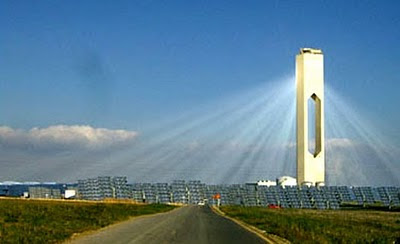The alternatives are viable and minimally impactive:
Biodiesel and ethanol from algae can and should replace petroleum consumption almost entirely within a span of ten to twenty years. Utilizing an area of only 15% of the area of the Sonoran Desert (18,000 sq. miles, or approximately 134x134 miles), spread across the southwest United States and perhaps into Mexico (assuming equitable trade practices), biodiesel and ethanol production utilizing algae (likely grown in salt water so as to minimize freshwater use) could completely replace the current transportation fuel needs of this nation. These plants can be made to be minimally impactive, and in fact if placed in such places as dry lake beds where little to no species of animals already maintain homes, the shade from the algae growing containers could provide at least temporary habitat for many desert-dwelling species.
Insofar as electricity production, solar mirror generating stations utilizing the heat produced to spin turbines could power the entire Unites States electrical grid utilizing an are of 92x92 miles, likewise spread throughout the southwest and into Mexico, and likewise not only scarcely impacting the environment but also providing shade for life to inhabit where was formerly uninhabitable, such as dry lake beds or other spans of hot desert land without any natural vegetation. Wind turbines, home-based solar and wind power, and perhaps some form of tidal energy harvesting combined with the aforementioned would certainly suffice, and these all combined would impact less land area far less detrimentally than current areas currently being impacted by coal mining.









1 comment:
Totally agree! Great post.
Post a Comment